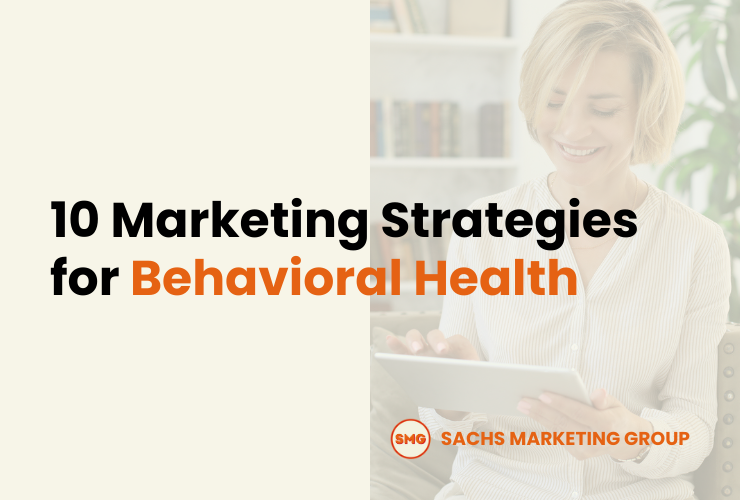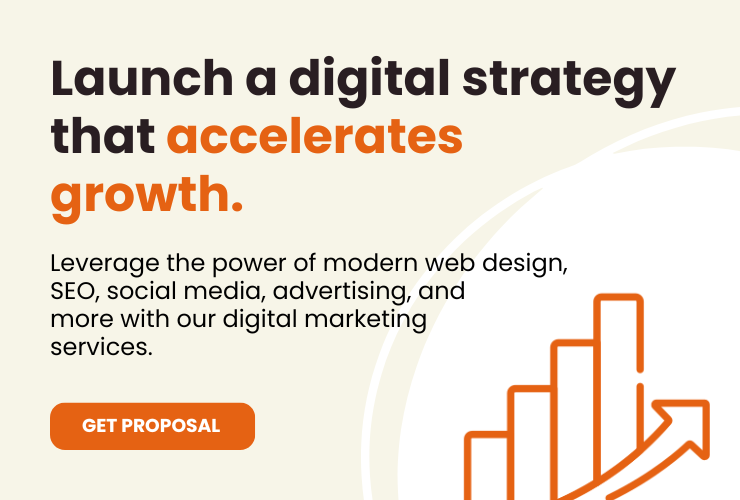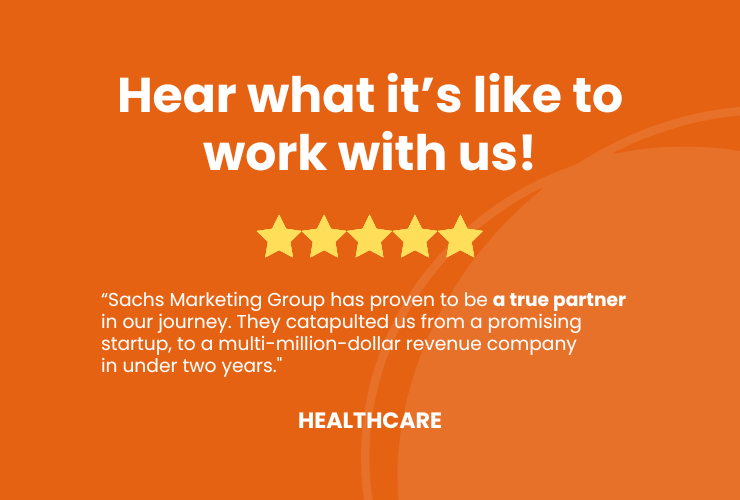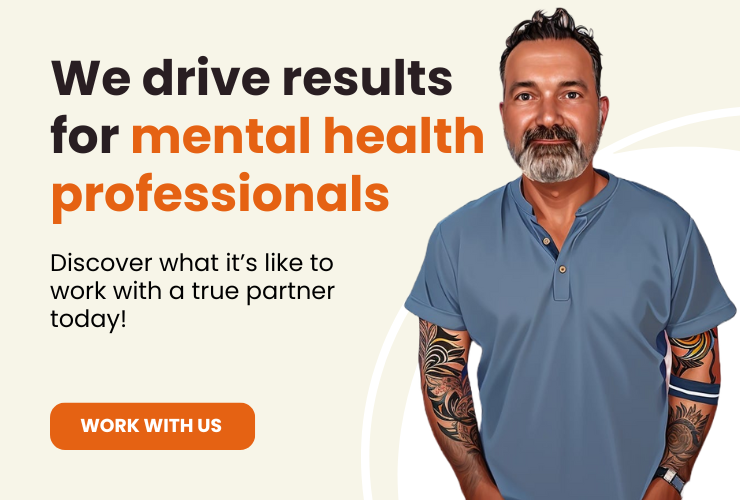Behavioral health marketing involves promoting services related to mental health and substance abuse treatment. It aims to connect practitioners with individuals in need, using strategies that respect the subject's sensitivity. Effective marketing in this field builds trust, raises awareness, and encourages people to seek help through tailored content, ethical advertising, and community engagement.
Behavioral health marketing takes on a nuanced role, blending sensitivity with strategic outreach to connect services with those in need. This specialized marketing ensures that the message of help and hope reaches the right audience without compromising tact and empathy.
There are many approaches to digital marketing for mental health professionals, all of which require a careful approach to accessibility, language, and ease of use.
This article provides a comprehensive overview of behavioral health marketing and outlines 10 marketing strategies for behavioral health providers.
Overview
Behavioral Health Marketing
Marketing for behavioral health services faces some tough challenges. One big issue is the stigma around mental health. This can make people hesitate to seek help or even discuss these services. Marketing messages must be welcoming and private, helping to break down this stigma without overwhelming anyone.
Another challenge behavioral health providers face is fierce competition. The behavioral health market is projected to grow to 115 billion by 2030.
Lastly, there are strict rules on how you can advertise health services. Marketers need to be sure that their materials follow these rules closely, which can make their job harder.
10 Marketing Strategies for Behavioral Health
Developing effective marketing strategies for behavioral health requires a thoughtful and sensitive approach.
Communicating the benefits of mental health services in a way that resonates with potential clients and encourages them to seek the help they need is essential.
Since privacy is a significant concern, strategies must also reassure clients about the security and confidentiality of their interactions. Moreover, the stigma surrounding mental health can make it challenging to engage audiences without reinforcing negative perceptions. Therefore, marketing efforts need to be crafted to educate, inform, and destigmatize mental health issues.
With this in mind, you can deploy several marketing strategies to help expand your visibility and attract more clients.
Here are 10 marketing strategies for behavioral health to help you get started.
1. Web Design: Increase Trust & Attract Clients
A professional website design can significantly boost trust among potential clients seeking behavioral health services.
A practical design should be clean and easy to navigate, ensuring visitors can find the information they need without confusion. Include elements like contact information, health provider credentials, and a clear explanation of services offered right up front.
Visuals should be calming and professional, avoiding anything too bright or flashy that might be overwhelming.
Importantly, make sure your site is accessible to everyone, including those with disabilities, which conveys inclusiveness and care for all client needs.
Related: The Ultimate Guide to Mental Health Website Design
2. SEO: Attract Clients from Search Engines Organically
Search Engine Optimization (SEO) is crucial for making your behavioral health services visible on the internet, where most people start their search for help.
Using the right keywords that potential clients will likely search for can drive organic traffic to your site. These keywords should be integrated naturally into high-quality content like blog posts, FAQs, and service descriptions. Regularly updating your website with fresh content helps maintain its relevance in search engine results.
Remember, the goal is to appear as high as possible in the search results, increasing the likelihood that someone in need will click through to your site.
Related: SEO for Therapists & Mental Health Professionals
3. Content Marketing: Demonstrate Your Expertise
Content marketing allows you to showcase your knowledge and authority in the behavioral health field.
Create and share valuable content that addresses common concerns, answers questions, and provides insights that potential clients might be searching for. This could include articles on coping strategies, advice on recognizing signs of mental distress, or updates on the latest in mental health research.
Offering this kind of useful information helps build trust and reliability between you and your potential clients. Furthermore, engaging content encourages visitors to return to your site, fostering a long-term connection that can lead to them choosing your services when they are ready to seek help.
4. PPC Advertising: Maximize Search Engine Visibility
Pay-per-click (PPC) advertising is an effective strategy to enhance your visibility on search engines quickly.
This approach allows you to appear at the top of search results for specific keywords, giving you greater exposure. You only pay when someone clicks on your ad, meaning you spend money on actual leads.
PPC is especially valuable for behavioral health services because it can be precisely targeted based on location and search behavior, connecting you directly with those seeking help.
Well-crafted ads can drive traffic to your site immediately, helping to increase the number of potential clients who see your services.
Related: The Clinician's Guide to Mental Health Ads and PPC Advertising
5. Social Media: Increase Engagement
Social media marketing can help you reach a wider audience. Social media platforms are powerful tools for increasing engagement with existing and potential clients in the behavioral health field.
Regular posts, live sessions, and interactive content can help create a community where people feel safe to share and interact. Use these platforms to spread positive messages, share mental health tips, and promote awareness about mental health issues.
Engaging content such as polls, quizzes, and infographics can stimulate interaction and foster a deeper connection with your audience. Moreover, social media allows for real-time communication and feedback, providing valuable insights into what your audience needs and expects from you.
Related: The Ultimate Guide to Social Media Marketing for Therapists
6. Influencer Marketing: Reach Larger Audiences
Influencer marketing can significantly amplify your reach within the behavioral health sector. Collaborating with influencers respected in mental health communities can lend credibility to your services.
These influencers often have devoted followers who trust their recommendations, making this a powerful way to reach a broader audience that might not be achieved through traditional marketing channels. Choose influencers who align with your brand's values and commit to improving mental health.
Their endorsement can help destigmatize seeking help and encourage more people to consider your services.
7. Email Marketing: Communicate Directly
Email marketing is a direct and personal way to communicate with prospective and current clients. It allows you to send tailored messages that speak directly to your audience's needs.
Emails can keep your audience informed and engaged, whether it's a monthly newsletter, a reminder about an upcoming webinar, or tips for managing anxiety. This strategy helps maintain ongoing relationships and keeps your services top of mind.
Moreover, email marketing can be segmented to target specific groups within your audience, ensuring that the content is highly relevant and increasing the likelihood of engagement.
8. Reputation Management: Build Trust & Credibility
Reputation management is crucial in behavioral health, where trust and credibility are foundational.
This involves monitoring and managing how your services are perceived online. Encourage satisfied clients to leave positive reviews and quickly address negative feedback professionally and carefully. Highlighting success stories and testimonials on your website can also build trust with potential clients.
Moreover, ensuring your practice adheres to the highest ethical standards and is transparent about your processes and outcomes can significantly enhance your reputation.
This proactive approach helps maintain a positive image and instills confidence in those seeking help.
9. Lead Tracking: Evaluate Lead Quality & Sources
Lead tracking is essential to understand which marketing efforts are most effective in attracting potential clients. By monitoring where leads come from and assessing their quality, you can tailor your marketing strategies more effectively.
This involves using tools to track how leads interact with your website and marketing campaigns, from initial contact to conversion. Analyzing this data helps identify which channels generate the most valuable leads, allowing you to optimize your budget and focus on the most effective strategies.
Accurate lead tracking can significantly improve the efficiency of your marketing efforts, ensuring you invest in channels that deliver results.
10. Analytics: Track Success Metrics & ROI
Analytics play a critical role in measuring the success of your marketing efforts and determining the return on investment (ROI).
You can gain insights into your marketing campaigns' performance by systematically tracking key performance indicators (KPIs) such as website traffic, conversion rates, and engagement levels.
This data lets you make informed decisions, adjust strategies as needed, and optimize your marketing spend.
Regular analysis ensures that your marketing efforts are aligned with your business objectives, helping you achieve better outcomes and maximize your marketing investment.
Working with A Behavioral Health Marketing Agency
Partnering with a digital marketing agency specializing in behavioral health can be a game-changer for providers looking to expand their reach and impact.
These agencies specialize in navigating the complexities of marketing within the health sector, bringing expertise in compliance, ethical advertising, and audience targeting.
An experienced agency understands the nuances of behavioral health marketing and can craft customized strategies that resonate with your target audience while adhering to industry standards.
By leveraging their expertise, you can enhance your marketing efforts, allowing you to focus more on providing care while the agency handles the intricacies of your marketing campaigns.
Need Help with Your SEO?
Are you ready to elevate your behavioral health practice to new heights with expert marketing strategies?
Sachs Marketing Group has over a decade of experience delivering customized digital marketing services that resonate deeply with your target audience, ensuring your message of support and professionalism reaches those in need.
Contact us today and watch your practice grow as we navigate the complexities of behavioral health marketing together.
Get a free, no obligation review of your digital marketing strategy!
"*" indicates required fields





